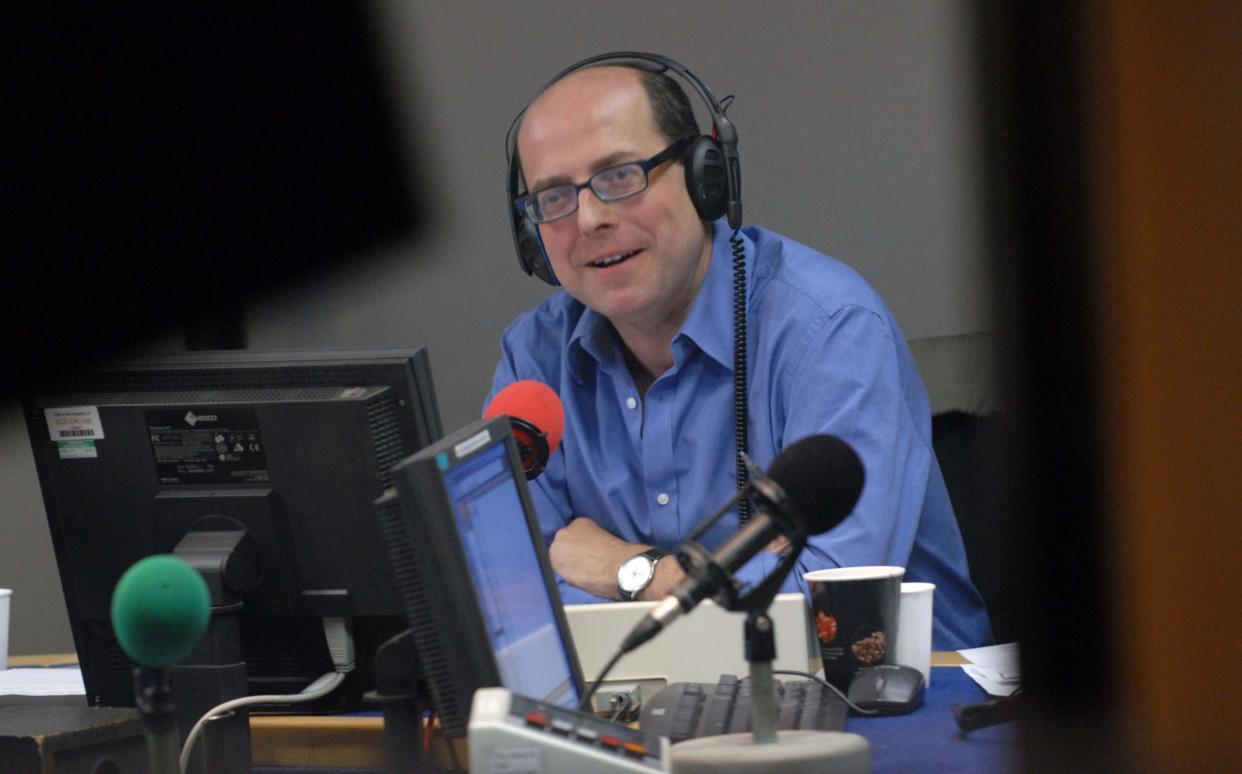BBC’s Nick Robinson: I should have been clearer over ‘Israel has murdered Palestinians’ claim

Nick Robinson has said he “should have been clearer” during an interview with Lord Cameron after a row over the BBC presenter’s claim that Israel had “murdered tens of thousands of innocent Palestinians”.
The corporation faced criticism after Robinson, a Today programme presenter, put the claim to the Foreign Secretary towards the end of their exchange on BBC Radio 4 on Monday.
He subsequently said he was not expressing his own view, “let alone the view of the BBC”, following the criticism.
In his final question to Lord Cameron, he said: “Isn’t the real risk of where we are now that western governments appear to back Israel the moment that Israel is under attack, but when Israel attacks and murders tens of thousands of innocent Palestinians, we say the words but we do almost nothing?”
Lord Cameron replied “I don’t think that’s right at all. Actually, over this weekend and into this week, people can see that the truly malign actor in this region is Iran, a country that has launched a state-on-state attack, as you put it in your introduction.
“And it’s this country, Iran, that is backing Hamas in Palestine, that’s backing Hezbollah in Lebanon, that’s backing the Houthis in the Red Sea.”
Following criticism of his remarks, Robinson wrote on X, formerly Twitter: “There’s been some controversy about words I used when I was interviewing the Foreign Secretary David Cameron on the Today programme about Israel this morning.
“My final question was about the perceived ‘morality’ of the Government’s position – in particular the ‘risk’ that their position could ‘appear’ to look like active support for Israel when it is under attack, but nothing other than words ‘when Israel attacks or murders tens of thousands of innocent Palestinians’.
“I should have been clearer that I was not expressing my own view, let alone that of the BBC, when I used the words ‘murders’.
“In this 15-minute long interview, I asked the Foreign Secretary why ministers had supported Israel militarily, why they didn’t go further and support Israel in confronting Iran, why they weren’t tougher in confronting Israel over Gaza and ended with that question about the perceived ‘morality’ and the ‘risk’ of how the Government’s position ‘appears’. It was a lengthy and detailed exploration of the policy choices made by the Government.”
According to the Hamas-run health ministry, more than 32,000 Palestinians have been killed and over 74,000 wounded in Gaza during the conflict, but the terror group’s figures are unverified and do not differentiate between civilians and combatants.
Rishi Sunak said this month that there had been “too many civilian deaths” in Gaza, while maintaining that Israel has the right to defend itself.
Stephen Pollard, the editor at large of the Jewish Chronicle newspaper, claimed Robinson had asked a “shocking question, even for the BBC”. He wrote on X: “Murders? It’s one thing to accuse Israel of not taking enough care over civilians. But murder? Deliberately seeking to kill Palestinian civilians?”
Nicole Lampert, a journalist and broadcaster, said: “The BBC’s Today programme just lies here – dangerous lies. Israel has not deliberately ‘murdered tens of thousands’.”
A survey commissioned by the Jewish Chronicle in December found that more than three-quarters of Jewish people thought the BBC’s coverage of the Gaza conflict was biased against Israel.
The broadcaster has faced criticism since its refusal to describe Hamas as terrorists in the wake of the Oct 7 massacre, although it now states in its reporting that Hamas has been designated as a terrorist organisation by the Government.
In response to allegations of bias, a BBC spokesman said the organisation “holds itself to high standards of impartial reporting and rejects the suggestion that we are biased against Israel”.
The BBC has previously said: “The conflict is a challenging and polarising story to cover, and we are dedicated to providing impartial reporting for audiences in the UK and across the world. Our own audience research shows that BBC News is considered the most impartial provider for coverage of the conflict.”
The BBC was contacted for comment.

